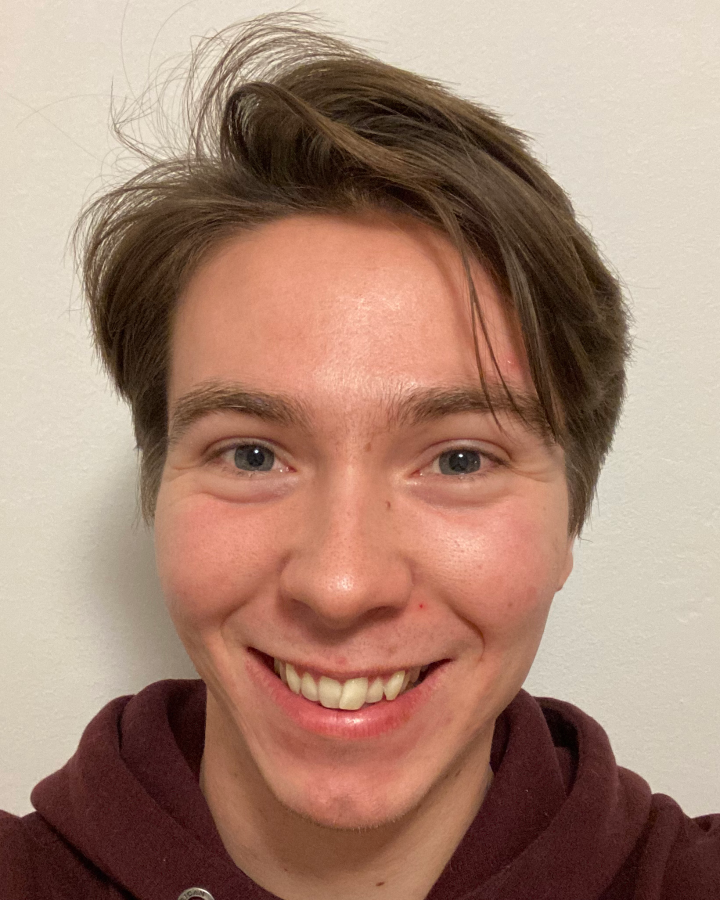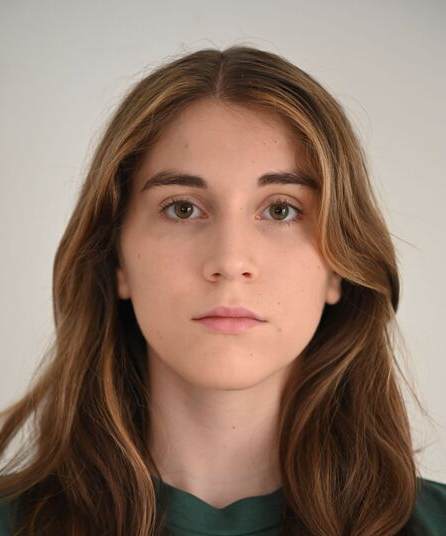Gerti Kappel
O.Univ.Prof.in Dipl.-Ing.in
Mag.a Dr.in techn.
Gerti Kappel
- Email: gertrude.kappel@tuwien.ac.at
- Phone: +43-1-58801-18870
- Office: HC0215 (1040 Wien, Favoritenstrasse 9)
- About:
Gerti Kappel is full professor at the Institute of Information Systems Engineering at TU Wien, chairing the Business Informatics Group. Prior to that, from 1993 to 2001, she was a full professor of computer science (database systems) and head of the Department of Information Systems at the Johannes Kepler University Linz.
From 2016 to 2019, she was a member of the dean’s team of the Faculty of Informatics responsible for research, diversity, and financial affairs. Since the beginning of 2020 she acts as the dean of the Faculty of Informatics at TU Wien.
Her current research interests include Model Engineering, Web Engineering, and Process Engineering, with a special emphasis on cyber-physical production systems. Striving for the unity of research and teaching, she co-authored and co-edited among others „UML@Work“ (dpunkt.verlag, 3rd ed, 2005), „UML@Classroom“ (Springer, 2015), and „Web Engineering“ (Wiley, 2006).
- Orcid: 0000-0002-4758-9436
- Keywords: Process Engineering, Data Engineering, Services Engineering, UML and XML, Business Process Management (BPM), Model Engineering, Workflow Management Systems (WFMS), Web Engineering, Object Orientation, Software Engineering
- Roles: Head of Services, Full Professor
Publications
Teaching Models @ BIG - How to Give 1000 Students an Understanding of the UML
 Martina Seidl
Martina Seidl Manuel Wimmer
Manuel Wimmer Michał Śmiałek
Michał ŚmiałekKeywords:
Astract: In this paper, we report our experiences on teaching the Unifi ed Modeling Language in the large. More precisely, about 1000 computer science and business informatics students attend our course Object-Oriented Modeling each year. Requiring a profound understanding of the
UML, many advanced courses like Software Engineering or Model Engineering build on the knowledge imparted by our course.
In order to achieve our ambitious teaching targets, we establish personal mentoring despite the mass enhanced with e-learning facilities.
Scholz, M., Seidl, M., Wimmer, M., Huemer, C., & Kappel, G. (2008). Teaching Models @ BIG - How to Give 1000 Students an Understanding of the UML. In M. Śmiałek (Ed.), Promoting Software Modeling Through Active Education, Educators Symposium Models’08 (pp. 64–68). Warsaw University of Technology. http://hdl.handle.net/20.500.12708/52264
AMOR - Towards Adaptable Model Versioning
 Kerstin Altmanninger
Kerstin Altmanninger Angelika Kusel
Angelika Kusel Werner Retschitzegger
Werner Retschitzegger Martina Seidl
Martina Seidl Wieland Schwinger
Wieland Schwinger Manuel Wimmer
Manuel WimmerKeywords:
Astract: The development of complex software systems requires appropriate
abstraction mechanisms in terms of model-driven engineering techniques
(MDE) and proper support for allowing developers to work in parallel in terms of version control systems (VCSs). For realizing the vision of MDE, a bundle of standards has been made available recently, whereas the versioning of models has not gained the necessary attention yet, although being of paramount importance for the success of MDE in practice.
In this paper, we propose a first vision of AMOR (Adaptable Model
Versioning) to leverage version control in the area of MDE. The innovations of AMOR are threefold. Firstly, AMOR supports precise conflict detection, i.e., previously undetected as well as wrongly indicated conflicts shall be avoided.
Secondly, AMOR focuses on intelligent conflict resolution by providing
techniques for the representation of conflicting modifications as well as suggesting proper resolution strategies. Thirdly, AMOR targets an adaptable versioning framework, empowering modelers to flexibly balance between reasonable adaptation effort and proper versioning support while ensuring generic applicability to various domain-specific modeling languages and associated tools.
Altmanninger, K., Kappel, G., Kusel, A., Retschitzegger, W., Seidl, M., Schwinger, W., & Wimmer, M. (2008). AMOR - Towards Adaptable Model Versioning. In 1st Int. Workshop on Model Co-Evolution and Consistency Management, in conjunction with Models’08 (p. 7). http://hdl.handle.net/20.500.12708/52277
Exercises for Object-Oriented Modeling
 Martina Seidl
Martina Seidl Manuel Wimmer
Manuel Wimmer
Scholz, M., Seidl, M., Wimmer, M., Huemer, C., & Kappel, G. (2008). Exercises for Object-Oriented Modeling. Educators Symposium @ MODELS 2008, Toulouse, Frankreich, EU. http://hdl.handle.net/20.500.12708/84744
Adaptivity in learning management systems focussing on learning styles
 Sabine Graf
Sabine Graf Kinshuk Kinshuk
Kinshuk KinshukKeywords: e-learning, technology enhanced learning, adaptivity in learning systems, learning management systems, Moodle, student modelling, learning styles, Felder-Silverman learning style model, working memory capacity
Astract: Lernplattformen, wie zum Beispiel WebCT, Blackboard und Moodle, werden heutzutage immer mehr genutzt. Während diese Lernplattformen Lehrende sehr gut im Erstellen und Abhalten von Online-Kursen unterstützen, bieten sie nur wenig bis keine Möglichkeiten, auf die individuellen Bedürfnisse, Fähigkeiten und Eigenschaften der Lernenden, wie zum Beispiel deren Wissensstand, Motivation, kognitive Fähigkeiten und Lernstile, einzugehen. In den letzten Jahren wurde vermehrt der Einfluss von individuellen Eigenschaften der Lernenden, wie beispielsweise deren Lernstile, auf den Lernprozess erforscht sowie Untersuchungen durchgeführt, um diese in e-Learning Systemen zu unterstützen. Diese Untersuchungen basieren auf erziehungswissenschaflichen Theorien, die besagen, dass Lernende einfacher und erfolgreicher Lernen, wenn Kurse an ihre individuellen Eigenschaften angepasst sind.
In dieser Dissertation wird gezeigt, wie Lernstile entsprechend dem Felder-Silverman learning style model in Lernplattformen berücksichtigt werden können. Ein Ansatz zum automatischen Erkennen von Lernstilen, bei welchem die Lernstile vom Verhalten der Lernenden im Online-Kurs hergeleitet werden, wurde entwickelt, implementiert und evaluiert. Die Ergebnisse zeigen, dass der Ansatz zum Erkennen von Lernstilen geeignet ist und Lernstile mit hoher Genauigkeit erkennt. Basierend auf diesem Ansatz wurde ein "stand-alone" Tool entwickelt, das automatisch Lernstile in Lernplattformen identifiziert.
Des Weiteren wurde untersucht, ob das automatische Erkennen von Lernstilen durch das Einbeziehen von zusätzlicher Information, wie zum Beispiel kognitiven Fähigkeiten, verbessern werden kann. Dafür wurde die Beziehung zwischen Lernstilen und der Kapazität des Kurzzeitgedächtnisses untersucht. Die Ergebnisse einer umfassenden Literaturrecherche sowie zweier umfangreicher Studien zeigen, dass Beziehungen zwischen Lernstilen und der Kapazität des Kurzzeitgedächtnisses bestehen und dass diese Beziehungen zusätzliche Informationen zum Erkennen von Lernstilen liefern.
Darüber hinaus wurde ein Konzept entwickelt, implementiert und evaluiert, welches Lernplattformen dahingehend erweitert, dass sie automatisch adaptive Kurse generieren und präsentieren können. Die in Moodle durchgeführte Evaluierung zeigt, dass das entwickelte Konzept erfolgreich Lernende unterstützt und ihnen das Lernen vereinfacht. Durch das Erweitern von Lernplattformen mit Adaptivität werden Lernumgebungen geschaffen, in denen sowohl Lehrende als auch Lernende unterstützt werden. In einer solchen adaptiven Lernplattform können Lehrende weiterhin die Vorteile von Lernplattformen nützen und Lernende werden zusätzlich mit adaptiven Kursen unterstützt. Die behandelten Forschungsfragen dieser Dissertation bilden wichtige Grundlagen für die zukünftige Entwicklung von Lernsytemen, welche die Bedürfnisse, Fähigkeiten und Eigenschaften der Studierenden erlernen, darauf umgehend eingehen und Kurse zur Verfügung stellen, in denen Adaptivität laufend verbessert wird und die an die jeweils aktuellen Bedürfnisse der Lernenden angepasst sind.
Graf, S. (2007). Adaptivity in learning management systems focussing on learning styles [Dissertation, Technische Universität Wien]. reposiTUm. https://resolver.obvsg.at/urn:nbn:at:at-ubtuw:1-20983
Modellgetriebene Entwicklung von Webanwendungen aus Anforderungsspezifikationen
 Thomas Hiebler
Thomas Hiebler Manuel Wimmer
Manuel WimmerKeywords: MDSD, MDA, JBoss Seam, Webapplication, UML, openArchitectureWare, Model-Driven-Development
Astract: Considering the major trends in the software engineering discipline, Model Driven Software Development (MDSD) is a promising advancement concerning the process of software development. MDSD supports both rapid adjustments regarding alternating implementation technologies and easy comprehensibility.
The development of software applications is frequently accompanied by a variety of problems like domination of expertise in technical matters, divergence of changing processes, and methodical gaps between analysis, design and implementation. By interpreting software models as source code, the model driven approach tries to reduce these problems.
This work explores a potential solution of the above mentioned problems by providing a model driven development environment for modelling and generating Web applications based on the JBoss Seam Framework. This framework has been chosen because it combines established Java technologies.
Besides receiving the required backend files from UML 2.0 structure diagrams, the prototypical user interface is automatically generated from the behaviour diagrams. This interface may be used as starting point for the design process of web applications. In addition to the automatic development of the frontend and backend of the application, this work also meets various quality aspects by showing possibilities of automatically extracting test cases from the developed models. The intention is to reduce the manual effort of testing throughout the whole development process. Exemplifying the development of the generators and models, a Web DVD store has been developed, which also exhibits the degree of automation by MDSD.
Hiebler, T. (2007). Modellgetriebene Entwicklung von Webanwendungen aus Anforderungsspezifikationen [Master Thesis, Technische Universität Wien]. reposiTUm. https://resolver.obvsg.at/urn:nbn:at:at-ubtuw:1-18782
Teaching
Project in Computer Science 1
Semester: 2025S; Nr: 194.145; Type: PR; Hours: 4.0; Language: if required in English; View on TISSSeminar for Master Students in Business Informatics
Semester: 2024W; Nr: 180.779; Type: SE; Hours: 1.0; Language: English; View on TISSResearch Seminar
Semester: 2024W; Nr: 188.446; Type: SE; Hours: 2.0; Language: if required in English; View on TISSLiterature Seminar for PhD Students
Semester: 2024W; Nr: 188.512; Type: SE; Hours: 2.0; Language: German; View on TISSModel Engineering
Semester: 2024W; Nr: 188.923; Type: VU; Hours: 4.0; Language: English; View on TISSBachelor Thesis for Informatics and Business Informatics
Semester: 2024W; Nr: 188.926; Type: PR; Hours: 5.0; Language: if required in English; View on TISSScientific Research and Writing
Semester: 2024W; Nr: 193.052; Type: SE; Hours: 2.0; Language: German; View on TISSProject in Computer Science 1
Semester: 2024W; Nr: 194.145; Type: PR; Hours: 4.0; Language: if required in English; View on TISSSustainability in Computer Science
Semester: 2024W; Nr: 194.155; Type: VU; Hours: 2.0; Language: English; View on TISSProjects
Digitale Kompetenzen @ Parlament
Name: DKP; Title: Digitale Kompetenzen @ Parlament; Begins On: 2021-04-01; Ends On: 2021-09-30; Context: Parlamentsdirektion; View Project WebsiteIFC-Roundtrip und Plangrafiken
Name: IFC-Roundtrip und Plangrafiken; Title: IFC-Roundtrip und Plangrafiken; Begins On: 2019-01-01; Ends On: 2020-06-30; Context: tbw solutions ZT GesmbH; View Project WebsiteVienna Informatics Living Lab
Name: Vienna Informatics Living Lab; Title: Vienna Informatics Living Lab; Begins On: 2018-08-01; Ends On: 2019-07-31; Context: Vienna Business Agency (WAW); View Project WebsiteMulti-Paradigm Modelling for Cyber-Physical Systems (MPM4CPS)
Name: MPM4CPS; Title: Multi-Paradigm Modelling for Cyber-Physical Systems (MPM4CPS); Begins On: 2014-10-01; Ends On: 2019-05-31; Context: European Cooperation in Science and Technology (COST); View Project WebsiteCOSIMO: Collaborative Configuration Systems Integration and Modeling
Name: COSIMO; Title: COSIMO: Collaborative Configuration Systems Integration and Modeling; Begins On: 2014-01-01; Ends On: 2017-05-30; Context: Vienna Business Agency (WAW); View Project WebsiteARTIST: Advanced software-based seRvice provisioning and migraTIon of legacy Software
Name: ARTIST; Title: ARTIST: Advanced software-based seRvice provisioning and migraTIon of legacy Software; Begins On: 2012-10-01; Ends On: 2015-09-30; Context: European Commission; View Project WebsiteDARWIN - Model-driven Development and Evolution of Semantic Infrastructures
Name: DARWIN; Title: DARWIN - Model-driven Development and Evolution of Semantic Infrastructures; Begins On: 2012-03-01; Ends On: 2015-02-28; Context: Austrian Research Promotion Agency (FFG); View Project WebsiteTROPIC: A Framework for Model Transformations on Petri Nets in Color
Name: TROPIC; Title: TROPIC: A Framework for Model Transformations on Petri Nets in Color; Begins On: 2009-03-01; Ends On: 2012-08-31; Context: Austrian Science Fund (FWF); View Project WebsiteAMOR: Adaptable Model Versioning
Name: AMOR; Title: AMOR: Adaptable Model Versioning; Begins On: 2009-02-01; Ends On: 2011-09-30; Context: SparxSystems Software GmbH; View Project WebsiteDevelopment of a WEB-based database for the global administration of CAN-Data
Name: Rosenbauer-DB; Title: Development of a WEB-based database for the global administration of CAN-Data; Begins On: 2008-09-01; Ends On: 2009-04-30; Context: Rosenbauer; View Project WebsiteModel-Driven Web Engineering net
Name: MDWEnet; Title: Model-Driven Web Engineering net; Begins On: 2006-12-01; Ends On: 2010-12-31; Context: Johannes Kepler Universität Linz; View Project WebsiteTRACK and TRADE: Creating a Data Mart for Floating Car Data
Name: TRACK™ Title: TRACK and TRADE: Creating a Data Mart for Floating Car Data; Begins On: 2006-10-01; Ends On: 2008-09-30; Context: European Commission; View Project WebsiteModelCVS: A Semantic Infrastructure for Model-based Tool Integration
Name: ModelCVS; Title: ModelCVS: A Semantic Infrastructure for Model-based Tool Integration; Begins On: 2006-01-01; Ends On: 2007-12-31; Context: ARIKAN Productivity Group GesmbH; View Project WebsiteZELESSA: An Enabler for Real-time Business Intelligence
Name: ZELESSA; Title: ZELESSA: An Enabler for Real-time Business Intelligence; Begins On: 2006-01-01; Ends On: 2007-06-30; Context: Österr. Nationalbibliothek; View Project WebsiteAdmina.at goes Austria
Name: Admina.at; Title: Admina.at goes Austria; Begins On: 2005-12-01; Ends On: 2007-09-30; Context: Federal Ministry of Science and Research (bm:wf); View Project WebsiteWomen's Postgraduate College for Internet Technologies
Name: WIT; Title: Women's Postgraduate College for Internet Technologies; Begins On: 2003-01-01; Ends On: 2007-12-31; Context: European Commission; View Project WebsiteTeam
Business Informatics Group, TU Wien
Professors
Christian Huemer
Ao.Univ.Prof. Mag.rer.soc.oec.Dr.rer.soc.oec.
Dominik Bork
Associate Prof. Dipl.-Wirtsch.Inf.Univ.Dr.rer.pol.
Gerti Kappel
O.Univ.Prof.in Dipl.-Ing.inMag.a Dr.in techn.
Henderik Proper
Univ.Prof. PhDResearchers
Aleksandar Gavric
Univ.Ass. MEng. B.Eng.
Galina Paskaleva
Projektass.in Dipl.-Ing.inDipl.-Ing.in BSc

Marianne Schnellmann
Univ.Ass.in BSc MScMarion Murzek
Senior Lecturer Mag.a rer.soc.oec.Dr.in rer.soc.oec.
Marion Scholz
Senior Lecturer Dipl.-Ing.inMag.a rer.soc.oec.
Miki Zehetner
Univ.Ass. DI Bakk.rer.soc.oec. MScSyed Juned Ali
Univ.Ass. BSc MScStudent-Staff

Florian Fankhauser
Projektass. Dipl.-Ing.Julia Smejkal
BSc






